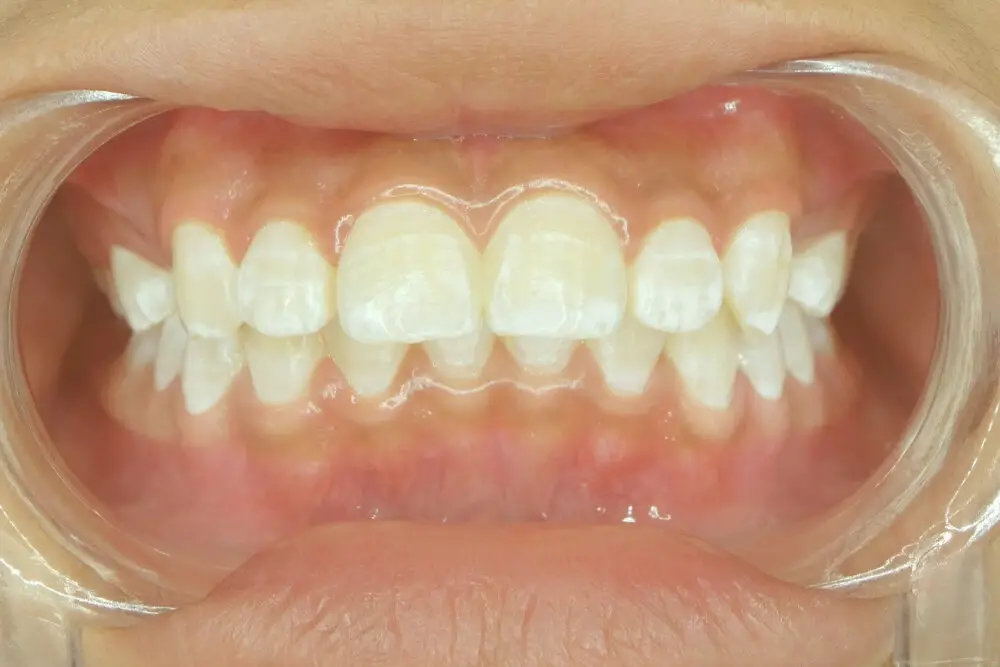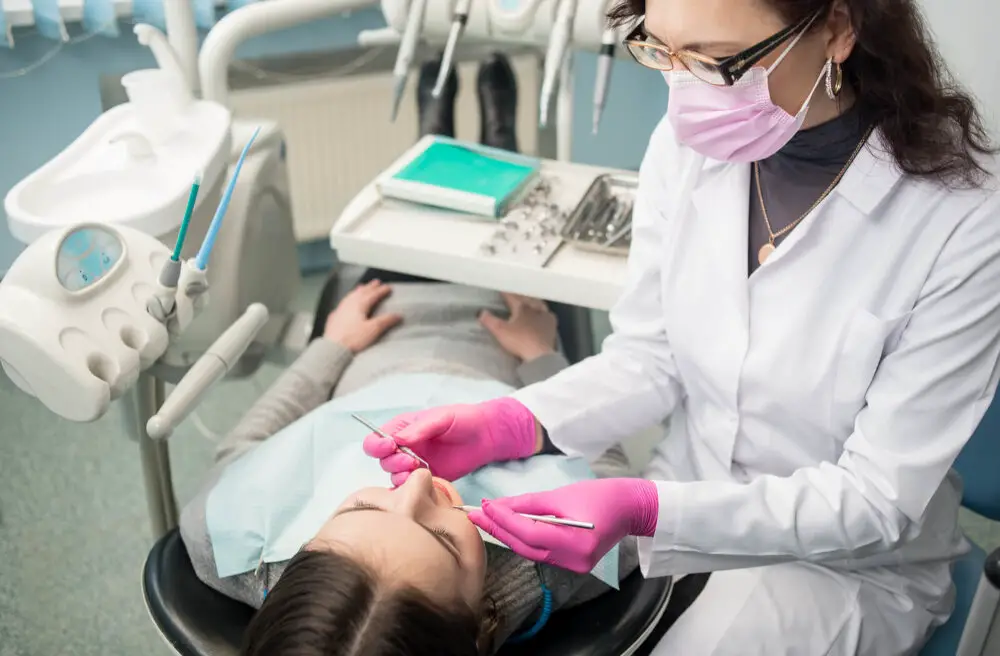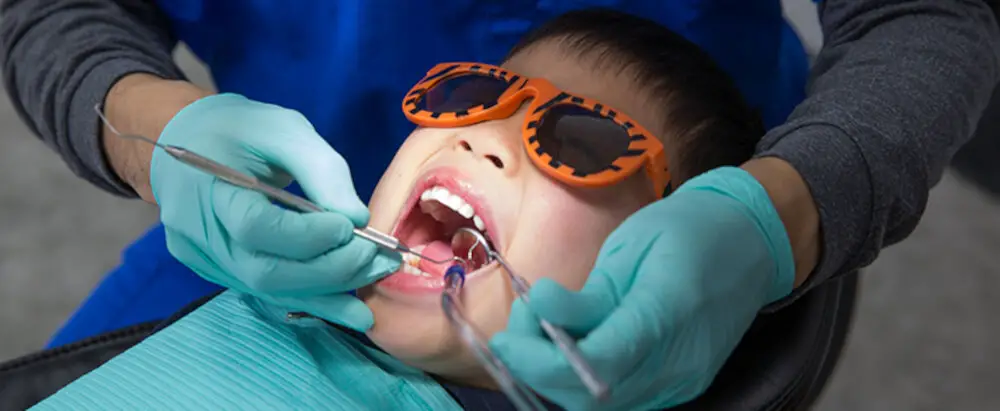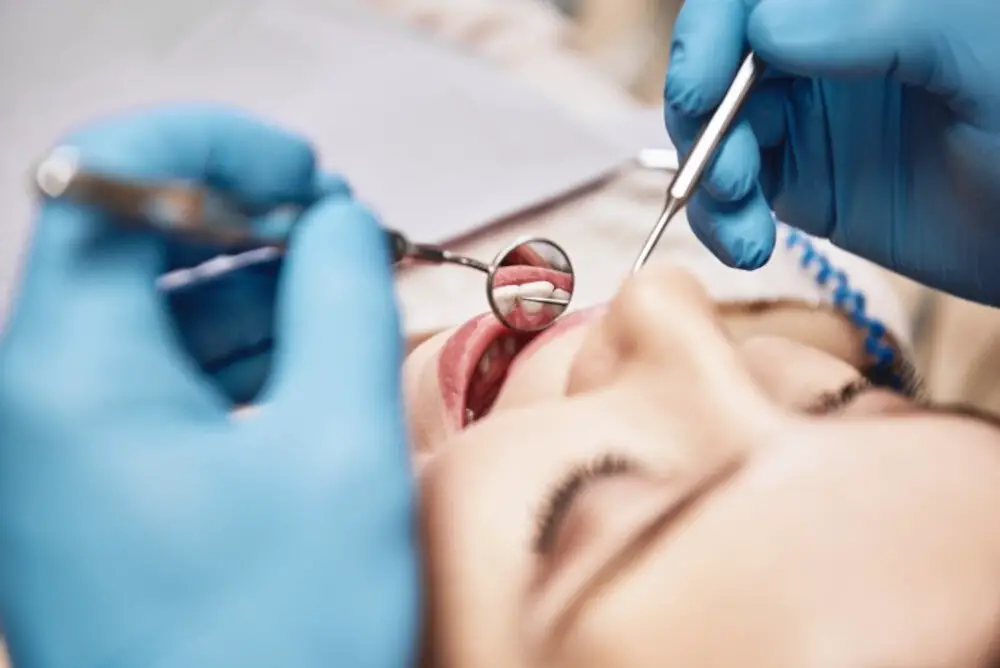Quick Healing Guide: How Long Does It Take for Wisdom Teeth Holes to Close?

Wisdom teeth removal is a common dental procedure that many people undergo during their lifetime. While it is a routine surgery, it does require some recovery time, and patients often have questions about the healing process. One of the most frequently asked questions is how long it takes for wisdom teeth holes to close. The answer to this question depends on various factors such as age, overall health, and the number of teeth that were removed. In this quick healing guide, we will explore the factors that affect the healing process, as well as tips and tricks for faster recovery. After wisdom teeth removal, a blood clot forms in the socket where the tooth was extracted. This clot is essential for the healing process, as it protects the bone and nerves underneath. The clot also helps to prevent infection and minimize bleeding. Over time, the clot will gradually disintegrate, and new tissue will begin to grow around the socket. This process is called granulation, and it usually takes about two weeks to occur. However, the complete healing of the hole can take anywhere from a few weeks to several months, depending on the individual’s circumstances.
Wisdom teeth, also known as third molars, are often removed due to their potential to cause dental problems such as crowding, infection, and decay. The extraction process involves making an incision in the gum tissue to access the tooth, which may require the removal of surrounding bone. After the tooth is extracted, the wound is closed with stitches, and gauze is placed to help control bleeding. The healing process typically takes about 1-2 weeks, during which time the patient may experience pain, swelling, and difficulty eating or speaking. It is important to follow post-operative instructions provided by the dentist or oral surgeon, including taking prescribed pain medication and avoiding hard or crunchy foods until the wound has fully healed. With proper care, the wisdom teeth holes should close within a few weeks, and the patient can resume normal activities.
Having knowledge of how long it takes for wisdom teeth holes to close is crucial for a few reasons. Firstly, it helps to manage your expectations and prepare for the healing process, which can be uncomfortable and sometimes painful. Secondly, understanding the timeline of healing can help you plan ahead, such as scheduling time off work or avoiding certain activities that could disrupt the healing process. Additionally, knowing how long it takes for the holes to close can also help identify any potential complications or issues that may arise during the healing process, allowing you to seek medical attention if necessary. Overall, having a quick healing guide for wisdom teeth holes closure can help alleviate anxiety and promote a smoother recovery process.
Factors That Affect the Healing Time

There are several factors that can influence the healing time of wisdom teeth holes. The first factor is the age of the patient. Younger patients tend to heal faster than older patients due to better blood flow and higher metabolic rates. Another crucial factor is the overall health of the patient. Individuals who are in good physical health, exercise regularly, and eat a balanced diet typically heal faster than those who have underlying health conditions or poor lifestyle habits. Additionally, certain medications or medical treatments can slow down the healing process. For example, individuals who are taking blood thinners may experience prolonged bleeding and slower healing times. The location and complexity of the wisdom teeth extraction also play a role in the healing time. If the wisdom teeth were impacted or had to be surgically removed, the healing time may be longer than a simple extraction. Furthermore, the location of the wisdom teeth can also affect the healing time. Wisdom teeth that are located further back in the mouth may require more time to heal due to the limited blood flow in that area. Lastly, the post-operative care that patients receive can significantly impact the healing time. Following the dentist’s instructions, such as avoiding smoking and using a saltwater rinse, can help speed up the healing process and reduce the risk of complications.
The age and health of the patient play a crucial role in the healing process of wisdom teeth extraction. Younger patients tend to heal faster than older ones, primarily due to their ability to regenerate tissues quickly. However, older patients may have more health issues that could impede the healing process. Additionally, patients who smoke or have underlying health conditions, such as diabetes, may experience delayed healing or complications. Therefore, it is essential to inform your dentist of any health conditions or medication you are taking before the extraction to prevent any adverse effects on the healing process.
The extraction of wisdom teeth is considered a complex procedure due to a variety of reasons. Firstly, the location of these teeth in the back of the mouth makes them difficult to access, which requires the use of special instruments and techniques. Secondly, the roots of wisdom teeth are often curved and deeply embedded in the jawbone, making the extraction process more challenging. Additionally, the size and shape of the tooth can also affect the complexity of the extraction. Finally, the potential for complications such as infection or nerve damage further adds to the complexity of the procedure. Overall, the extraction of wisdom teeth requires a high level of skill and expertise to ensure a safe and successful outcome.
There are several types of extraction methods used to remove wisdom teeth, and the chosen method can affect the healing time. Simple extractions are performed when the tooth is visible above the gumline and can be easily removed with forceps. Surgical extractions are required when the tooth is impacted or covered by gum tissue, and the dentist or oral surgeon may need to remove bone to access the tooth. Additionally, some dentists use a technique called \socket preservation\ to promote faster healing. This involves placing a bone graft in the extraction site to stimulate new bone growth and prevent the surrounding teeth from shifting. Overall, the type of extraction method used can impact the healing process, so it’s important to discuss options with your dentist or oral surgeon.
Postoperative care is crucial for a quick and successful healing process after wisdom teeth extraction. During the first 24 hours, it’s essential to rest and avoid any strenuous activities that could increase bleeding. Applying ice packs can help reduce swelling and discomfort. It’s also crucial to follow the prescribed pain medications and antibiotics as directed by the dentist. After the first day, gentle rinsing with warm salt water can help keep the extraction site clean. It’s essential to avoid drinking through a straw, smoking, or consuming hard or crunchy foods that could disrupt the healing process. By following these postoperative care tips, patients can ensure a smooth and speedy recovery from wisdom teeth removal.
Typical Healing Timeline

The typical healing timeline for wisdom teeth holes to close can vary depending on several factors. Generally, it takes around 1-2 weeks for the initial healing process to occur. During this time, the patient may experience some swelling, pain, and bleeding around the extraction site. It is important to follow the post-operative instructions given by the dentist to ensure proper healing. This may include avoiding smoking, spitting, or using straws, as well as taking prescribed pain medication. In addition, the patient should eat soft foods and maintain good oral hygiene by gently brushing and rinsing their mouth. After the initial healing process, the patient may notice that the hole where the wisdom tooth was extracted is still present. This is because the body is still working to fill in the hole with new bone and gum tissue. It can take several weeks or even months for the hole to completely close. During this time, the patient should continue to follow good oral hygiene practices and monitor the extraction site for any signs of infection. It is also important to attend follow-up appointments with the dentist to ensure proper healing and identify any potential issues. By following these guidelines, patients can expect a successful and timely healing process after wisdom teeth extraction.
The first 24 hours after wisdom teeth extraction can be the most uncomfortable and require the most attention. It is common to experience pain, swelling, and bleeding during this time. To manage the pain, over-the-counter painkillers such as ibuprofen or acetaminophen can be taken as directed. Applying an ice pack to the cheek for 10-20 minutes at a time can also help reduce swelling and discomfort. It is important to avoid smoking, drinking through a straw, and consuming hot or spicy foods during the first 24 hours to prevent further irritation to the extraction site. Additionally, following the dentist’s instructions for proper oral hygiene and avoiding strenuous activity can promote a quicker and smoother healing process.
The first week after extraction of wisdom teeth is crucial for the healing process. It is common to experience pain, swelling, and bleeding during this time. To minimize discomfort, it is recommended to apply ice packs to the affected area and take pain medication as prescribed by the dentist. It is also important to avoid smoking, drinking through a straw, and consuming hard or sticky foods that could dislodge the blood clot and delay healing. Gently rinsing with salt water multiple times a day can help promote healing and prevent infection. The first week after extraction requires patience and careful attention to promote proper healing and minimize complications.
During the second week after extraction, the healing process is well underway, and you may start to feel more comfortable. The swelling and discomfort should have significantly reduced, and you may even begin to experience some new sensations as the gum tissue continues to regenerate. At this stage, it’s important to maintain good oral hygiene practices, such as gently rinsing your mouth with warm salt water and avoiding hard or crunchy foods that could damage the delicate tissue. You may also start to notice some minor itching or tingling as the new tissue forms, but this is a normal part of the healing process. Overall, the second week is a critical time in your recovery, and it’s important to follow your dentist’s instructions carefully to ensure a speedy and successful healing process.
The third week after wisdom teeth extraction is a critical time for the healing process. During this stage, the holes left behind by the extracted teeth are partially filled with new tissue, and the surrounding gums start to close and heal. Patients may still experience some pain and swelling, but this should gradually decrease as the days go by. It’s crucial to continue following post-operative care instructions provided by the dentist, such as avoiding hard or crunchy foods, using ice packs to reduce swelling, and rinsing with salt water. Proper care during the third week can significantly improve the healing process and reduce the risk of complications such as infection or dry socket.
Tips for Faster Healing

If you recently had your wisdom teeth removed, you might be wondering how long it will take for the holes to close. While healing time can vary from person to person, there are some tips you can follow to speed up the healing process. First and foremost, make sure to follow your dentist’s post-operative instructions carefully. This may include taking prescribed pain medication, applying ice to reduce swelling, and avoiding certain foods for a period of time. By following these instructions, you can help to prevent infection and promote faster healing. Another tip for faster healing is to maintain good oral hygiene. Even though you may be experiencing some discomfort, it’s important to continue brushing and flossing your teeth as directed by your dentist. This will help to prevent bacteria from building up in the extraction site, which can slow down the healing process. Additionally, you may want to rinse your mouth with salt water several times a day to promote healing and reduce inflammation. By taking these steps, you can help to ensure that your wisdom teeth holes close as quickly as possible, allowing you to get back to your normal routine in no time.
Following the dentist’s instructions is crucial for a quick and smooth healing process after wisdom teeth extraction. Some of the common instructions may include taking prescribed medications, avoiding smoking and drinking alcohol, rinsing the mouth with warm salt water, and applying ice packs to reduce swelling. It is also important to maintain good oral hygiene by gently brushing and flossing the teeth, but being careful not to disturb the extraction site. By adhering to these instructions, one can help promote healing, prevent complications, and ensure that the wisdom teeth holes close up as quickly as possible.
Managing pain and swelling is an essential aspect of the healing process after wisdom teeth removal. To alleviate pain and swelling, over-the-counter pain medications such as ibuprofen or acetaminophen can be taken as prescribed by the dentist. Applying an ice pack to the affected area for about 20 minutes, several times a day, can also help reduce swelling. It is important to avoid smoking, using straws, or eating hard or crunchy foods for the first few days after surgery to prevent any discomfort that may prolong the healing process. Additionally, maintaining good oral hygiene by gently rinsing the mouth with salt water can help prevent infections and promote healing. In case of severe pain or swelling, it is advisable to contact the dentist immediately for proper evaluation and treatment.
Being mindful of what you eat is crucial when it comes to the healing process of wisdom teeth holes. Consuming healthy, nutrient-dense foods can help speed up the recovery process and reduce the risk of infection. It is advisable to avoid hard, crunchy, and sticky foods as they can dislodge the blood clot and cause discomfort. Opting for soft foods like soups, smoothies, and mashed potatoes can significantly aid in the healing process. Additionally, avoiding tobacco, alcohol, and caffeine during the recovery period can promote faster healing and reduce the risk of complications. Overall, being mindful of what you eat during the recovery period can help ensure a smooth and speedy healing process.
Maintaining good oral hygiene is crucial for the quick healing of wisdom teeth holes. After wisdom teeth extraction, it is essential to keep the area clean to prevent any infection and promote healing. Brushing twice a day and flossing daily helps to remove any food particles and bacteria from the mouth. Rinsing with saltwater or antimicrobial mouthwash can also help to reduce inflammation and aid in the healing process. Patients should avoid smoking, using straws, and consuming hard or crunchy foods as they can irritate the extraction site. By following these simple steps and maintaining good oral hygiene, patients can ensure a speedy recovery after wisdom teeth extraction.
It is highly recommended to avoid smoking and alcohol consumption after wisdom teeth extraction. Smoking can delay the healing process, increase the risk of infection, and cause dry socket, a painful condition where the blood clot that forms in the socket is dislodged. Alcohol can also interfere with the healing process and cause bleeding, as it thins the blood. It is important to follow the post-operative instructions provided by the dentist or oral surgeon to ensure proper healing and minimize complications. Patients should also avoid spicy and crunchy foods, as well as strenuous physical activity, for at least a few days after the procedure.
In summary, wisdom teeth extraction is a common dental procedure that can cause discomfort and pain for a few days. The healing time for wisdom teeth holes differs for every individual. Generally, it takes about 7 to 10 days for the holes to close, but in some cases, it may take up to 3-4 weeks. Proper care, such as keeping the area clean and following the dentist’s instructions, can help to speed up the healing process. It’s also important to avoid smoking, drinking alcohol, and eating hard or crunchy foods during the healing period. If you experience severe pain or prolonged bleeding, it’s best to speak with a dentist or oral surgeon for advice.
Following postoperative care instructions and having patience is crucial for faster healing after wisdom teeth extraction. Ignoring these instructions can lead to complications, such as infection and delayed healing time. Patients should avoid smoking and drinking through a straw, as well as consuming hard or chewy foods for several days after the procedure. Additionally, keeping the mouth clean and following any prescribed medication regimen can aid in the healing process. While it may be tempting to resume normal activities, rushing the healing process can lead to setbacks and longer overall recovery times. Therefore, it’s important to prioritize rest and follow the advice of your dental professional to ensure a speedy and successful recovery.
Conclusion

In conclusion, the healing process for wisdom teeth extraction is a gradual one and varies from person to person. Depending on various factors such as age, oral hygiene, and the number of teeth extracted, the healing time can range from a few days to several weeks. It is important to follow the post-operative care instructions provided by the dentist or oral surgeon, including maintaining proper oral hygiene, taking prescribed medications, and avoiding hard or chewy foods. While it may be uncomfortable and inconvenient, allowing sufficient time for the holes to close and the surrounding tissues to heal properly is crucial for the prevention of complications and long-term oral health.







